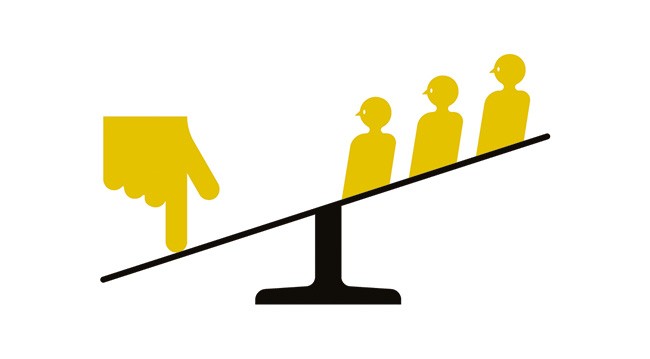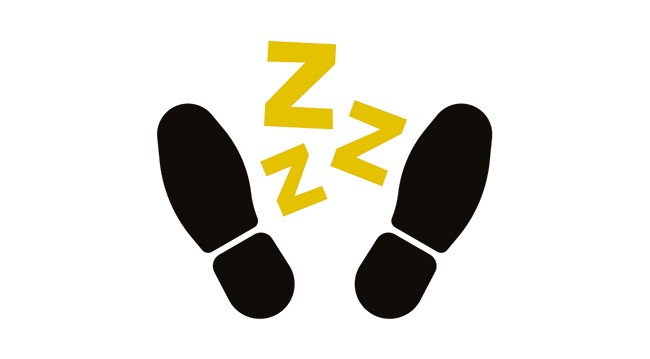From hubris to wilful blindness, we outline the 7 deadly sins of boardroom culture drawn from examples on the public record and gain some insights on what not to do.
Neglecting to observe the law

Disclosures made by a long list of companies during the banking Royal Commission show multiple instances of breaking the law. But this recent convulsion is not the first time company boards have come under pressure to account for serious compliance failures. Pamela Hanrahan, Professor of Taxation and Business Law at UNSW, says there has been a tendency for companies to issue mea culpas, but not follow through with thorough root and branch self-examination and reform.
“We hear it a lot”, she says. “The old, ‘We have failed in our responsibilities and the high standards we set ourselves’ line. How about just not breaking the law?”
The Australian Prudential Regulation Authority (APRA) report into the Commonwealth Bank of Australia (CBA) highlights the AUSTRAC case where a similar lack of board cognisance ended with the company incurring the biggest fine in Australian corporate history, amounting to $700m, earlier this year. As admitted in an agreed statement with AUSTRAC, repeated instances of illegal money laundering using CBA facilities had resulted in millions of dollars flowing through to drug importers. Hundreds of thousands of transactions took place, and the bank failed to comply with legal reporting requirements.
The circular economy aims to reduce the environmental impact of business by incorporating reuse and recycling into business models. Here's the lowdown on expectations, state and federal policies and emerging regulatory schemes.
Read more on culture from this issue below
Three internal Red Audit Reports had been prepared:
- In 2013, the first report highlighted a series of repeated issues
- In 2015, the second report noted that the issues raised two years earlier had not been acted on
- In 2016, the third report “was unambiguous in its messaging”.
Instead of attracting a high level of urgency, APRA found CBA’s Board Audit Committee (BAC) fatally had a “light hand on the tiller”.
It had not been provided with copies of the full reports, and nor did it ask for them; the “owners of the issues” did not appear directly before the committee for questioning; and the BAC failed to require timely follow-up.
While the bank is now requiring internal audit to monitor successful closure on issues, APRA notes it’s not intended to be a permanent reform. “The panel cautions against any return to the status quo ante,” it says.
The franchise chain 7-Eleven made headlines in 2015 after revelations of systematic illegal underpayment of employees. The board was routed and as deputy chair Michael Smith FAICD (former AICD chair) was elevated to chair, he admitted the board should have known what was going on.
“We were aware of a few isolated cases that were being managed and it was on our risk register,” he told BOSS magazine. However, he said internal audits found the board was unaware of the extent and systematic nature of the underpayments.
Former Australian Competition and Consumer Commission chair Allan Fels was appointed to oversee the compensation of workers totalling more than $150 million. In public commentary about 7–Eleven, Fels cited union complaints going back over a decade, and three major investigations by the Fair Work Ombudsman.
What to do
- Recognise that multiple risks need adequate monitoring: financial, operational, reputational, environmental, industry-related and legal
- Ensure there is a sound system of risk oversight, risk management and internal control
- Regularly review the adequacy of risk oversight
- Assess if the reporting to the board is sufficient
- Require extra information if needed, through briefings, presentations and site visits as appropriate
- Ask for independent external advice if questions still need to be answered.
Wilful blindness

Wilful blindness is a legal concept, which says that if there are things that you could and should know, yet somehow manage not to know, the law holds you responsible.
The multi-billion-dollar US fraudster Bernie Madoff recognised this from his prison cell in 2011, as his cheated investors wreaked vengeance against UBS, JP Morgan Chase, and HSBC in lawsuits claiming the financial backers were “wilfully and deliberately blind” to his massive Ponzi scheme. “Look, I am not a banker, but I know that billions of dollars going in and out of a bank account is something that should alert you to something. [They] got all the financial statements. [They] could have seen. I was using them as custodian, and they never questioned it,” he told the Financial Times.
The term “wilful blindness” hit the headlines in 2011, when Rupert Murdoch and his son, James, fronted the House of Commons over rampant phone hacking and widespread payments to police at News Limited tabloid News of the World. When company chair James Murdoch was asked if he knew the term “wilful blindness”, he stared blankly. Murdoch Sr interjected that he’d heard the term, “but we have never been guilty of that.”
Later probes revealed strenuous corporate efforts to conceal evidence from investigators and the shredding of millions of emails. Public fury forced the closure of News of the World, Rupert Murdoch quit a string of News Corp boards, and shareholders renewed calls for him to quit News Corp. James resigned as chair of News International and satellite broadcaster BSkyB.
Entrepreneur and TED speaker Margaret Heffernann spoke about the “bubble of power” that isolates the mighty from reality and ethics.
What to do
- Identify and challenge your biases
- Encourage debate on the board
- Listen to internal alarm bells, give them voice
- Have the courage to speak up
- Don’t back away when a difficult issue arises.
Hubris

The subject of many an ancient Greek tragedy, hubris is the overweening pride that comes before a fall. In 2008, with the global economy in full meltdown, Queen Elizabeth II visited the London School of Economics. According to an LSE report, she asked a pointed question: “Why did no one notice the crisis was on its way?”
Academics scrambled for an answer and eventually 30 expert signatories, including Tim Besley, a professor at LSE and a member of the Bank of England’s monetary policy committee, wrote to the monarch confessing the failure to predict disaster with scorching embarrassment.
“Most experts believed that the financial wizards had found new and clever ways of managing risks,” the letter said. “It is difficult to recall a greater example of wishful thinking combined with hubris.”
Ten years later, APRA has penned a damning indictment of the governance of Australia’s biggest bank, CBA, which it says fell victim to hubris. It describes a mood of “chronic ease” that had gripped the board.
“A high level of trust and confidence in management, driven by recent financial success, and a collective belief (that) it is well intentioned, conservative by nature and customer-centric,” lead to a “dulling of the senses” and a failure to identify “a deterioration in the risk profile,” the report says.
“It is seminal and profound,” says Shortland. “This was not a failed institution, it was financially extremely successful. But the behaviour that’s been uncovered is astonishing.”
What to do
- Directors have a duty to challenge and question reports to the board that are not explained or satisfactory
- The degree of trust placed in executives needs to be continually tested and validated through appropriate metrics
- Non-financial risks must be given due regard and time for assessment
- Processes for direct reports from trouble spots must be adopted
- Director oversight must move from a reactive “tick the box” exercise to proactive and urgent identification of risk and remediation.
Groupthink

In 2011 a landmark case brought by ASIC against property group Centro sent shock waves through boardrooms across the country. The directors had failed to notice an error in the financial reports — where $2b in current liabilities had been wrongly classified as non-current. They argued they’d relied on external auditors. However, the judge found they breached their duties by not checking the figures.
“They spent years in court, and lost their careers for handing over responsibility to advisors,” says Pamela Hanrahan. “Yet the Corporations Act 2001 (Cth) allows you to rely on advice — but only to ‘the extent that it is reasonable to do so’. Some things are non-delegable. So this was salutary.”
The court found the company’s debt position had been discussed at board meetings. Yet none of the directors had picked up on or queried it.
Hanrahan says this kind of “groupthink” is a risk for directors who must think sceptically and carefully. “There’s an emphasis on recruiting independent directors to help avoid groupthink,” she says. “But a board has a homogenising culture. The emphasis should be on getting brutally honest advice.”
Professor Carol Adams, editor of the Sustainability Accounting, Management and Policy Journal, says diversity on a board is critical. “You have to have varying viewpoints, and strong people who are prepared to speak up,” she says, stressing that diversity is multifaceted. “It’s gender, it’s ethnicity and it’s skills,” she says.
“Social connections drive board appointments and more than two-thirds of directors in the 200 largest public companies are on the boards of multiple companies,” according to Sherene Smith at RMIT.
Louise Pocock, deputy executive director of the AICD Governance Leadership Centre says it’s time to stretch the envelope. “Diversity of thought may encourage open-mindedness, innovation and creativity among directors, thereby assisting problem-solving.”
What to do
- Ensure a diversity of views, backgrounds and skills on the board
- Directors should be appointed based on the board’s identified skills matrix
- Directors must act with constant skepticism
- Don’t be afraid to be the squeaky wheel that asks questions. It’s appropriate to demand information.
Conflict of interest

Boards routinely have to deal with potential conflicts, but what counts is that appropriate processes are in place and followed. The temptations for directors to help themselves instead of acting in the best interests of their organisation are manifold. It could be to help out a family member, it could be to line their pockets, but once a director strays into the path of self-interest they are breaching their duties and the Corporations Act 2001 (Cth).
Emeritus Professor Ronald Francis at Victoria University put it this way: “With economic opportunities come criminal ones, as well as opportunities for unethical profit.”
Perhaps the most famous conflict of interest case in Australian corporate history is ASIC v Adler — which relates to the collapse of insurance giant HIH that left billions of dollars in debts and thousands of victims in its wake.
As the company was faltering in 2000 “Rocket” Rodney Adler, a non-executive director, had $10m from an HIH subsidiary transferred by the CEO, Ray Williams, and the CFO, Dominic Fodera, to Pacific Eagle Equity, a company he controlled.
He used nearly $4m of the money to buy HIH shares, thereby propping up the share price and the value of his own shareholding — falsely telling reporters he was using his own money to demonstrate his immense confidence in the company. The remainder of the $10m was spent on other Adler interests, which all made substantial losses. This occurred without board approval. There was no proper documentation or security.
Rodney Adler was found to have breached his director responsibilities — he’d not acted in “good faith” nor for a “proper purpose”, and in circumstances where there was a “real or substantial possibility” of a conflict of interest. He spent two-and-a-half years in jail and was banned from managing a corporation for 20 years.
The HIH Royal Commission found poor business ethics had reigned at the company and there was no system to manage conflicts of interest.
A more recent example, Malek Fahd Islamic School was one of the biggest private schools in Sydney with 2400 students, when in 2016 it faced closure after the federal government raised concern over improper financial arrangements, stripping it of $19m in funding.
The not-for-profit was found guilty of fiduciary breaches. Its board had voted to pay rent of more than a $1m a year to its landlord and founder, the Australian Federation of Islamic Councils (AFIC).
AFIC had exercised absolute control over the school by appointing its entire board, and dismissing any dissenting directors. The federal investigation revealed phantom loans, mystery payments and undeclared conflicts of interest.
Drawn-out legal cases, a restructure of the board and a realignment of its relationship with AFIC finally saw funding restored in September this year.
What to do
The board should adopt policies and procedures that address:
- How a conflict of interest is identified and what steps should be taken when such a conflict arises
- Ensure the conflicts of interest policy is reviewed regularly
- Remove conflicts by selling or placing in a blind trust any related company shares or other related interests
- Ensure conflicts are declared in every meeting upfront
- Directors should remove themselves from conversations where there is a conflict.
A dominating chair

Effective leadership is key to a company’s success, but wrestling with a dominating chair is not for the faint-hearted. Although it must be done when the situation demands it, challenging a chair is one of the most difficult conversations a director can have.
Some cases have become textbook — like the board bust-up at UK media giant Emap in 1996 when two independent directors stood up against Emap chair Sir John Hoskyns, who they believed was trying to “roll” the board.
Professor Ken Simmonds and Joe Cooke contested controversial changes to the company’s articles of association, which would have made ousting independent directors much easier. Simmonds claimed the proposal had been made by a “committee of two”, namely the CEO and the chair, and presented to the board pretty much as a fait accompli.
“How is it in shareholders’ interests to reduce the number of non-executives on the board?” he asked, according to contemporary media reports. He said they had a duty to speak out, and intoned British politician Edmund Burke: “For evil to triumph it only requires good men to do nothing.”
Hoskyns argued the amendments were insignificant “housekeeping” matters. The row was finally resolved at an emergency general meeting, marred by invective and shouting.
Simmonds defended good governance, telling shareholders he had acted to protect the company’s future value: “You need to make sure that the board… does not fall under the effective control of any one person, and that internal self-policing is adequately provided for… To remove a minority for trying to ensure shareholders are fully informed is dangerous.”
The EGM voted overwhelmingly to oust the two independent directors — an outcome the Financial Times described as, “a slap in the face for two courageous men”.
David Shortland says there is a deep challenge now in Australia for boards to get the composition of the board right, and get the culture right.
“Being challenging is vital — it is absolutely a director’s job to test and inquire. One of the best directors I’ve ever seen asks more questions when things are going well. She says things like: ‘This is marvellous, why are we doing so well? What’s underpinning that success?’ By doing this, she can amplify other areas where the company can be innovative. Equally, it’s a way of validating the methods that have been adopted.”
Directors often fear being cast as the “squeaky wheel” or even worse, being humiliated. Carol Adams recounts that during her research she interviewed the chair of a company with coastal assets. He told her about one board member who raised the impact of rising sea levels through climate change as a risk issue. “We all laughed at him,” the chair told her.
In her book Setting the Tone from the Top, co-writer Melinda Muth describes the dynamics of the difficult conversations directors must have and constructive ways of handling them. “Assertiveness is the quality of being self-assured and confident without being aggressive.”
What to do
- Constitutions should establish board terms and tenure
- There should be an annual assessment of the board as a whole and an assessment of each individual director — including the chair
- Directors should identify where the chair is not performing and have the courage to call it out and confront the issue appropriately
- Become self-aware about your own communication style and be assertive with words you use
- Ultimately, an under-performing chair should and can be voted out by their colleagues.
Not doing your homework

Director’s workloads have burgeoned with tighter regulation and greater accountability. One of the most common mistakes is to arrive at a meeting under-prepared.
“They don’t do their homework, so they just come in with opinions,” complains a veteran US director in Forbes (Five Most Common Mistakes of Board Directors, June 2018). “They are expected to understand what’s going on in the company, not merely react to what’s presented.”
Board discussions are strategic and operational. Preparation is essential to comply with the duty to make decisions with “care and diligence”, required under both common and statutory law.
In the long-running legal battles surrounding James Hardie and its asbestos fund that went all the way to the High Court, directors were pinged for lack of preparation and diligence. At a crucial board meeting held in February 2001, directors had approved a statement to be released to the ASX, which was later held to be misleading.
The statement said the new Medical Research and Compensation Fund being established was “fully funded” and could meet the company’s liabilities for asbestos compensation claims. But the fund was later found to be under-funded by a whopping $1.5b.
Seven James Hardie directors were found to have breached their basic duty and were fined and disqualified. Three senior executives were also fined and banned including CFO Phillip Morley, company secretary and general counsel Peter Shafron and former CEO Peter Macdonald.
Two directors had participated in this meeting via telephone and had not seen the draft announcement before they voted to approve it. The court found they had breached their duty of care by “failing to request that they be provided with a copy of the draft ASX announcement, and by failing to familiarise themselves with its terms”.
A separate related court action has become an object lesson in the problems that can arise if directors sign off on minutes they don’t read thoroughly. The James Hardie directors disputed board minutes of an earlier meeting as inaccurate, saying that despite what the minutes stated, the draft ASX announcement was later amended and never approved by the board in its original form. The minutes had been drafted before the meeting actually took place and did contain significant errors. However, they never reflected the directors’ assertions, and the later board approval of the ASX statement validated them.
The High Court found board minutes to be “an immensely powerful evidential” record of events at the meeting.
AICD facilitator David Shortland MAICD says a deep understanding of the role of director is required. “There is no probationary period. It might feel hard, but the job of a director is to be engaged and raise things. You can’t do that if you aren’t well-prepared.”
What to do
- Board papers should be attached to the notice of meeting
- Directors are duty-bound to read them thoroughly
- Preparation involves engagement with the matters at a strategic level
- Any questions or alarm bells need to be raised and satisfied
- Sufficient preparation allows for knowledgeable quizzing of company executives
- Board minutes must be taken and read diligently for accuracy.
Latest news
Already a member?
Login to view this content


